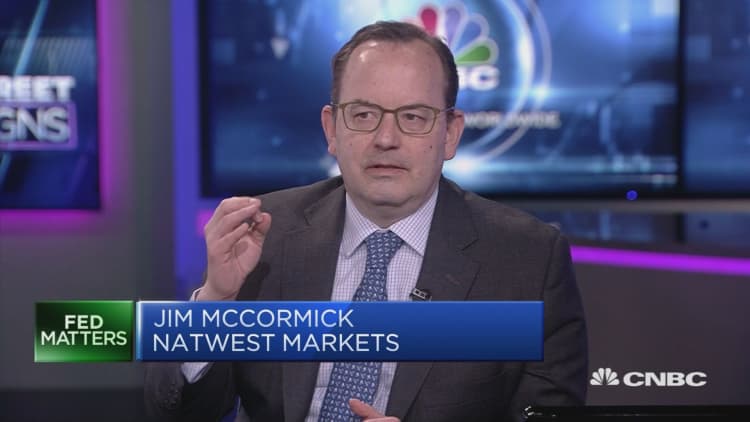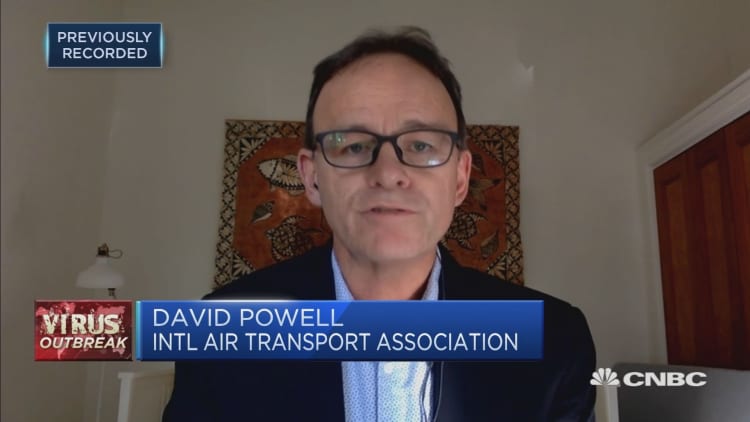China introduced a temporary ban on wildlife markets in the country — thought to be the source of the new coronavirus — but there are increasing calls from wildlife organizations, activists and the public to make the ban permanent to prevent further outbreaks.
The virus is believed to have originated in a seafood market (also known in China as a "wet" market) in Wuhan, Hubei province, where wild animals were also being sold. It has now infected over 44,000 people in China since the outbreak began in December and over 1,100 people have died, the Chinese government said Tuesday night.
As the virus has spread, pressure has mounted on the authorities to crack down on these markets. On January 30, a temporary ban on the trade of wild animals — ranging from snakes to rare birds, bats to turtles — in wet markets, supermarkets, restaurants and e-commerce platforms came into effect.
It's suspected that pangolins — an endangered (and protected) mammal often illegally poached for its scales that are used in traditional Chinese medicine — could be the source for the new coronavirus, or "COVID-19" to give it its new name, but that link is still being investigated.
Wild animal meat is prized as a luxury and delicacy among some wealthy Chinese, as in other parts of the world, a factor that maintains the illegal poaching, and trading of, wild animals.
When China introduced the temporary ban, it said that "any violation of the provisions of this announcement shall be investigated and dealt with severely in accordance with the law and regulations." However, it said the ban would only cover the period until "the epidemic situation is lifted nationwide."

Permanent ban coming?
On February 3, Chinese President Xi Jinping gave the greatest signal yet that a full ban is on the cards. Chairing a meeting to study the prevention and control of the coronavirus, he said "it is necessary to strengthen market supervision, resolutely ban and severely crack down on illegal wildlife markets and trade, and control major public health risks from the source," Chinese news agency Xinhua reported.
Then on Monday, the National People's Congress (NPC) of China declared it would revise wildlife protection laws and regulations, in order to "toughen the crackdown on wildlife trafficking," Xinhua reported, with an official stating that "the supervision, inspection and law enforcement should be strengthened to ensure that wildlife trade markets are banned and closed."
Experts say an outright, and permanent, shutdown of such markets is necessary.
Dr. Zhou Jinfeng, the director-general of a Beijing-based non-governmental organization called the China Biodiversity Conservation and Green Development Foundation, has been very vocal in calling for a ban. He told CNBC Wednesday that he and his organization were "very happy and encouraged" by Xi's statement last week.

"(A permanent ban) is very, very important. Because any advocacy, code of conduct and supervision will lack the basis if there is no legal basis," he told CNBC via email. However, he noted that "even if new laws are adopted, it is very difficult for the government to implement them effectively, which has been clearly proved by the facts in the past."
He said to move forward, three basic changes were needed: "Public participation and whistle-blowing have played a crucial role in the past years. Law enforcement needs to take these reports seriously."
Secondly, that social organizations "should be authorized to sue the local governments for failing to perform their duties and dereliction of duty" as well.
Thirdly, he said, "There must be accountability mechanism" as he said there were government officials who are complicit in illegal wildlife trading. Jinfeng noted that some bushmeat market businesses and online trading platforms use certain licenses to make the meat they're selling look "farmed" when in fact the animals are actually wild-sourced.
Jinfeng said that China should pass a biodiversity conservation law in 2020, especially as China is hosting a UN biodiversity conference later this year.
Stopping the sale of wild animals appears to have the support of many Chinese people, some of whom have taken to social media to deplore the trade. Many are indignant that a wildlife market is the likely source of the coronavirus.
That might have helped to apply pressure to the Chinese authorities more than Western organizations that have called out China's wildlife markets.
Nonetheless, global wildlife organizations are among those pressuring China to close live animal markets for good. Issuing a statement Tuesday, the New York-based Wildlife Conservation Society reiterated an earlier call it made for China's temporary ban on the sale of wildlife in markets to be made permanent.
"Preventing future zoonotic outbreaks is not about targeting one species — like pangolins, bats and snakes — but taking strong actions to ban wet markets trading in wildlife and broadly strengthening wildlife laws and regulations," Chris Walzer, executive director of the Wildlife Conservation Society Global Health Program, said Tuesday.
While Walzer applauded the NPC's announcement Monday that it would revise wildlife protection laws, he said a wet markets ban was necessary.
"We applaud this leadership and continue to call for the permanent ban on the wet markets that trade in wildlife. All evidence continues to lead to the wildlife section of the market in Wuhan where the virus was transferred from animals in humans. Markets with mixed species from the wild are an ideal incubator and must be closed in China and elsewhere."
Steve Keen, honorary professor at University College London's Institute for Strategy, Resilience and Security, told CNBC that a shutdown would not be difficult in an authoritarian country like China.
"I've been to some of those markets in China, in Sichuan province, and I've also seen how China can enforce things like this (bans) and frankly, I'd rather them enforce it. When a Chinese official is told to enforce some guideline like that, then it's brutal how they do it but they shut it down. When they're told by China's Communist Party that this has to be shut down, they shut it down."
"There will be tiny elements where it happens (and markets are not shut down) but it's not going to be in the major markets and when you see the range of food that's there and the capacity for these things (animals) to interact biologically, which of course they do, transmitting one virus and communicating strands that give you resistance or susceptibility … then I would go for the shutdown routine."



